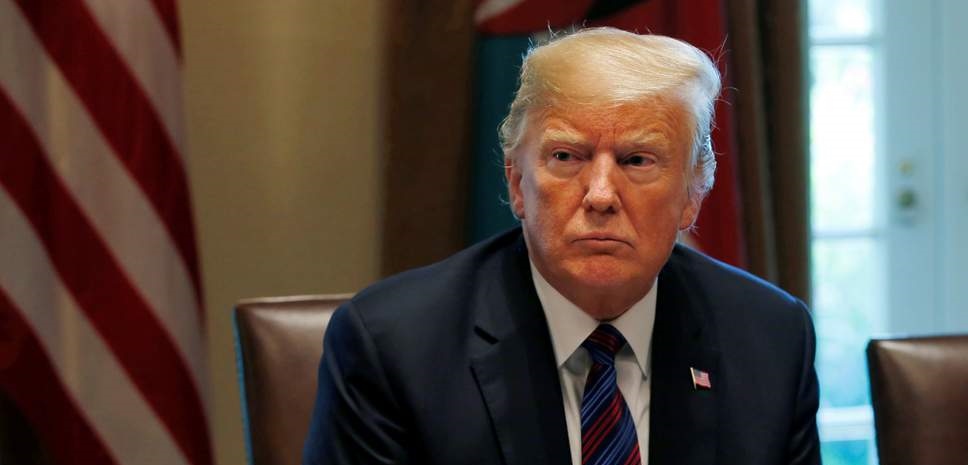Trump threatens to pull US out of WTO
August 31, 2018 | Expert Insights

President Trump on Thursday threatened to pull the U.S. out of the World Trade Organization (WTO) "if they don't shape up," a stance he has reportedly discussed in private but has denied publicly.
Background
The WTO officially commenced on 1 January 1995 under the Marrakesh Agreement, signed by 124 nations on 15 April 1994, replacing the General Agreement on Tariffs and Trade (GATT). It is the largest international economic organization in the world.
The WTO is the only international organization handling the regulations of trade between countries. WTO’s agreements are negotiated and signed by most of the trading nations around the world and approved in respective parliaments. The organization’s primary objective is to make sure that trade flows as predictably, effortlessly, efficiently, and freely as possible, across nations.
The United States of America has been a WTO member since 1 January 1995 and a member of GATT since 1 January 1948.
Analysis
The United States once viewed the World Trade Organization as the wave of the future, an improvement over the aging General Agreement on Tariffs and Trade system and a hub of rules-based stability for countries — rich and poor, democratic and nondemocratic — engaged in the international buying and selling of goods and services.
Leaving the WTO would upend the decade –old international trade system, which the US helped establish in 1995, and roil markets around the world.
The WTO was established to provide rules for global trade and resolve disputes between countries.
The United States on Monday told the World Trade Organization (WTO) that it plans to block the reappointment of one of the WTO's four remaining judges.
Blocking the reappointment of Shree Baboo Chekitan Servansing, a judge from Mauritius, could move the WTO closer to ceasing operations. If the U.S. is successful in blocking the reappointment next month, the WTO would have only three of its typical seven judges, which added that if it drops to below three judges, the organization will not be able to function. Two of the other judges’ terms expire in December of next year.
Trumps threat to walk away from the world body may be the tipping point for Republicans on the Hill who have resisted challenging his imposition of tariffs on key allies and trading partners – despite growing calls from constituents that tariffs and counter measures are harming their business.
Trumps response worries trade experts and international relations experts because he has shown little reluctance to take US out of international agreements he dislikes.
Shortly after taking office in January 2017, Trump withdrew the US from the 12 –nation Trans-Pacific Partnership agreement. In August 2017, Trump announced his withdrawal from the Paris climate accord and in May 2018, he pulled out of the Joint Comprehensive Plan of Action negotiated in 2015 to control Iran’s nuclear development while easing economic sanctions.
Trump would need lawmakers’ approval to leave the WTO since Congress approved legislation in 1994 that authorized U.S. membership in the organization. Under that legislation, lawmakers can decide every five years whether the United States should continue its membership. In 2000 and 2005, Congress reviewed and voted on resolutions of withdrawal filed by lawmakers. The resolution in 2000 was rejected on a 56-363 vote in the House, while the 2005 resolution fell on an 86-338 vote. No votes occurred in 2010 and 2015.
Previous U.S. presidents grew frustrated with the WTO, but none had threatened to withdraw. American irritation with the organization seems to have grown since the WTO admitted China, an entry the U.S. supported after negotiating conditions for membership. Those conditions included requirements that Beijing follow free-market principles, reduce tariffs and remove trade barriers, give foreign businesses equal footing with Chinese firms and protect intellectual property rights.
While the United States has won WTO cases against China for violations, it complains that Beijing frequently promises to comply but does not. For example, Trump administration officials, trade experts and some lawmakers cite a 2013 U.S. win against China on practices that kept foreign companies out of its domestic electronic payment services industry. Chinese leaders, including President Xi Jinping, have committed several times to open the market. Witnesses, however, told the Senate Finance Committee earlier this year that Beijing has yet to act on applications from U.S. companies to enter the market.
Counterpoint
Wilbur Ross’s criticism is at odds with 2017 findings by the Cato Institute showing the U.S. prevailed in 91 percent of the 114 adjudicated cases it brought against other countries.
Assessment
Our assessment is that the U.S. withdrawal from the WTO would send global markets into a spiral and cast trillions of dollars of trade into doubt. We feel it will also shatter an institution that for 70 odd years has been a pillar of global economic and political stability. We believe that though Trump can make such a notification at the WTO, the withdrawal will need the approval of the US Congress.








Comments